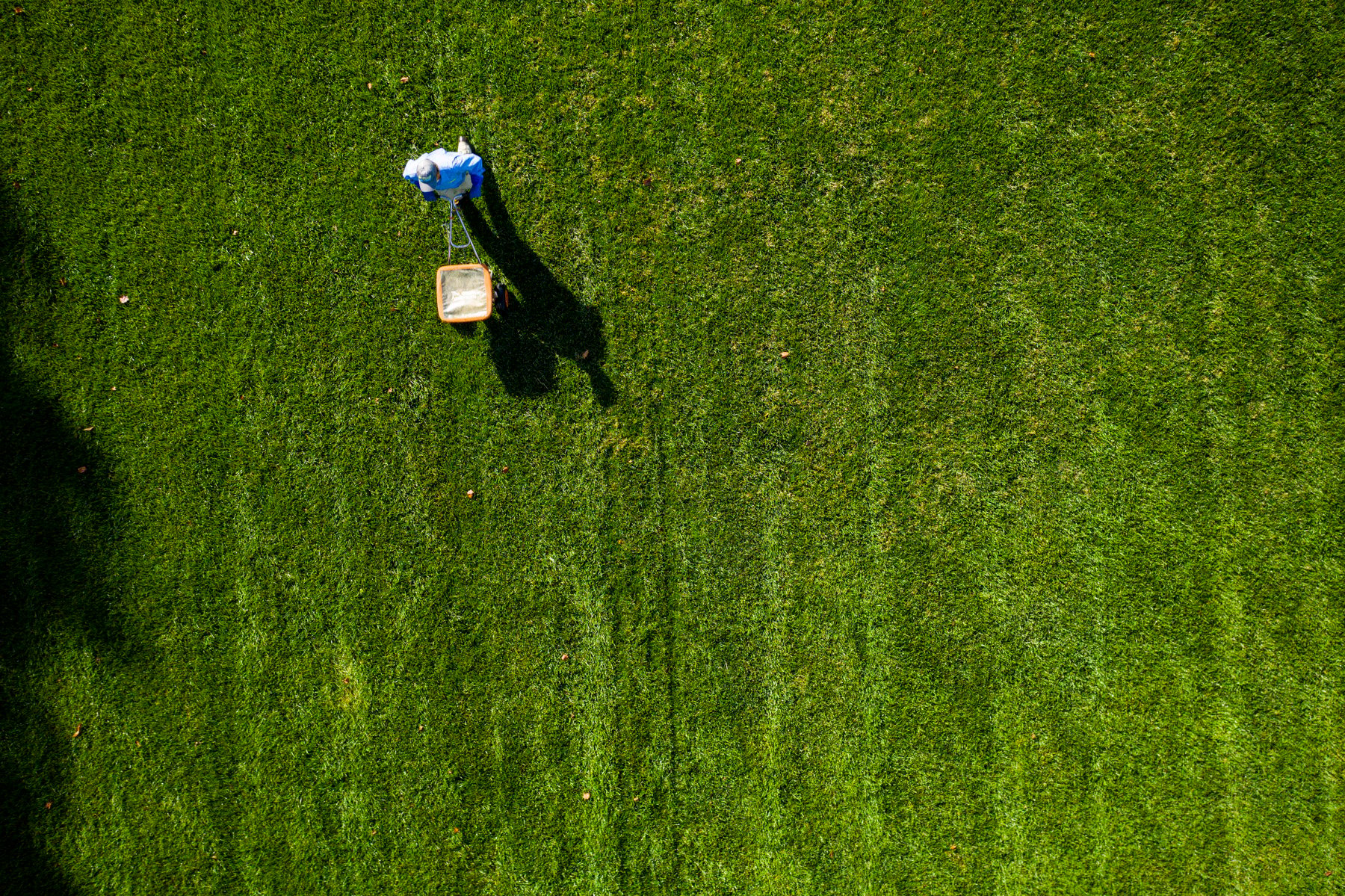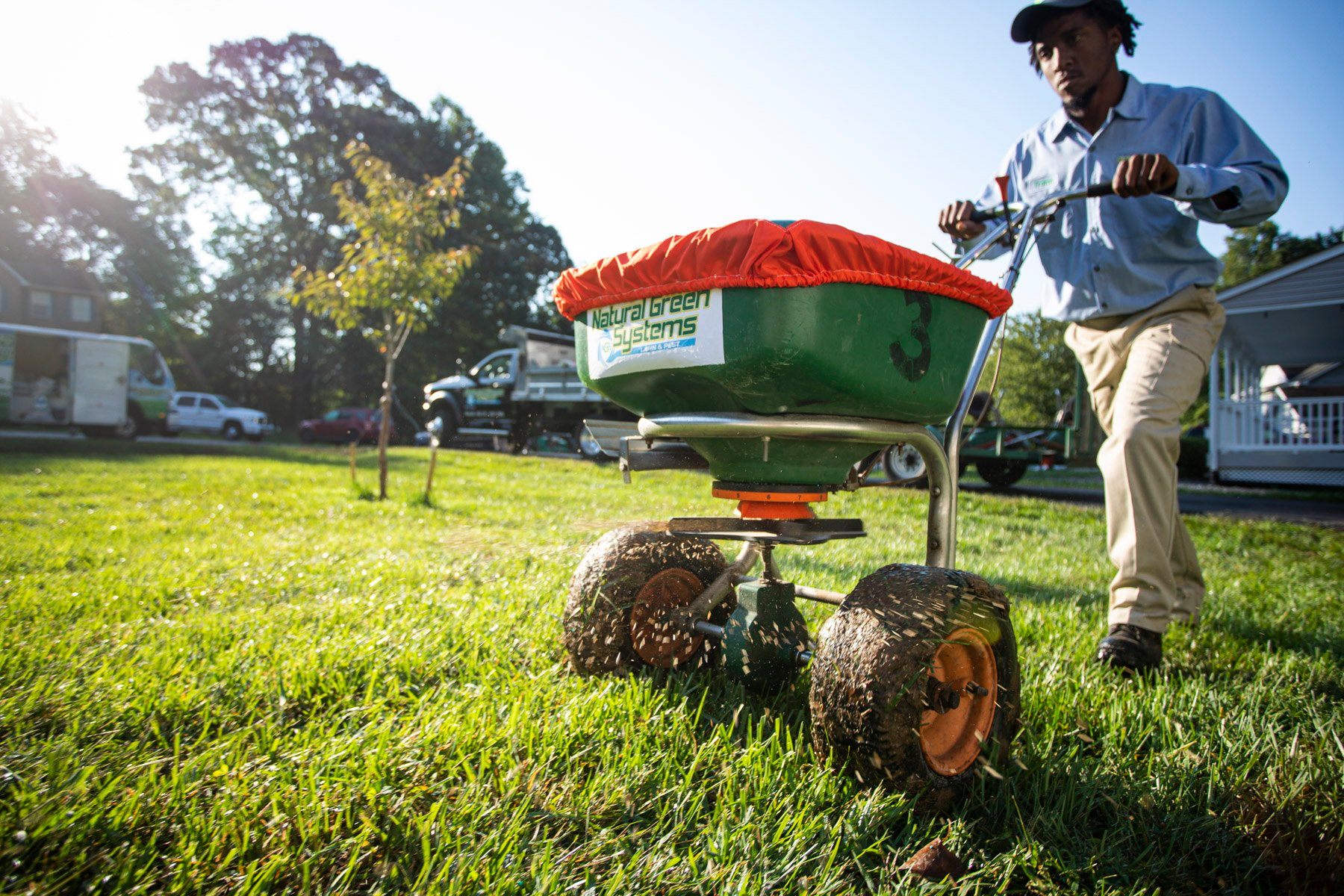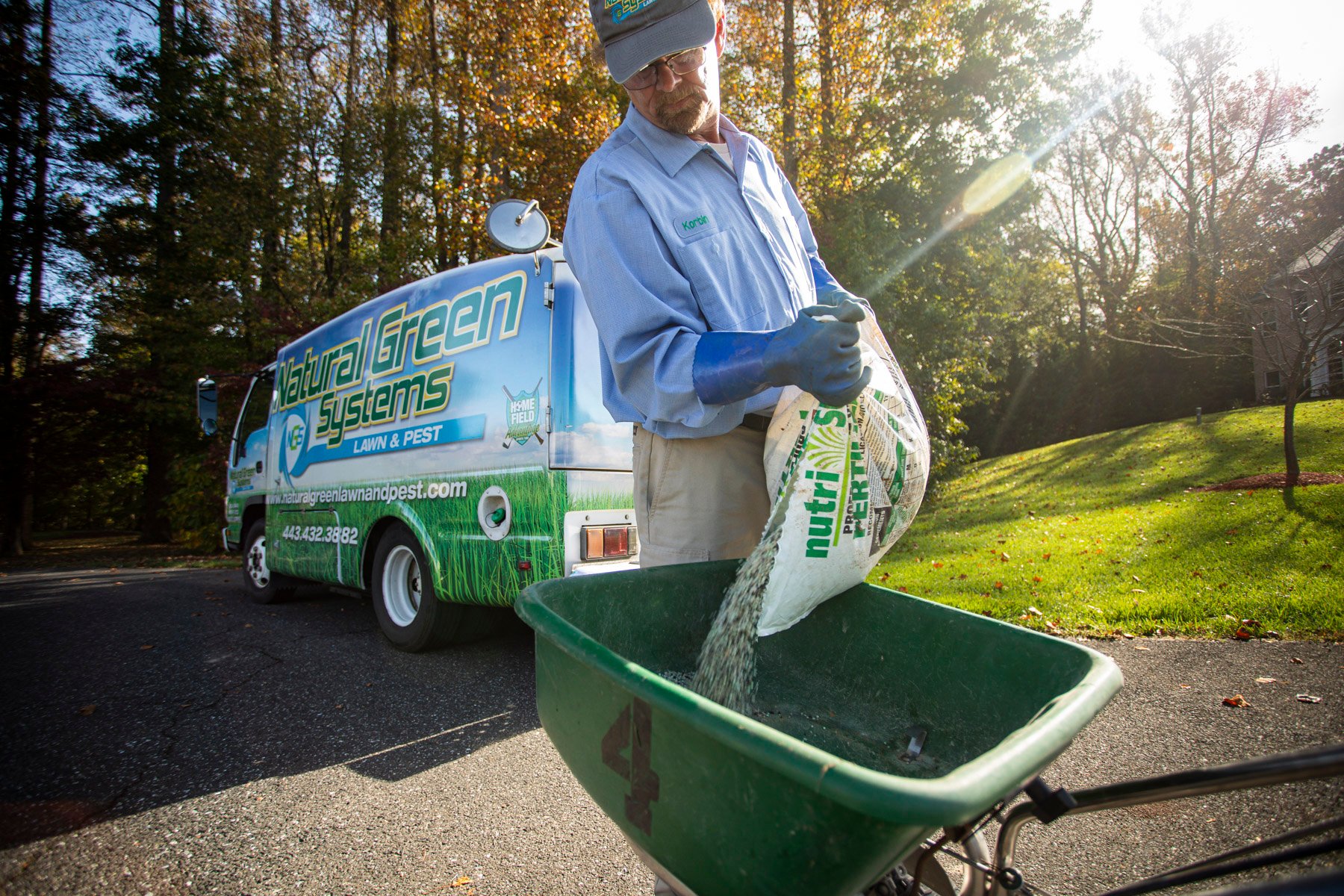6 Common Lawn Care Myths You Might Actually Believe
Every one of you reading this blog probably has one person in your neighborhood or on your street who claims to be your resident lawn expert.
He’s always outside on his riding lawn mower, surveying his grass. He’s always talking about how often to mow and how short and when to fertilize or water. He knows it all -- at least that’s what he thinks.
Unfortunately, we all have these neighbors who speak rather authoritatively on a subject matter, claiming expertise. But does he really know what he’s talking about?
The truth is there are many lawn care myths out there. The practice has been around for quite awhile, so it’s natural that you’d find some discrepancies.
But as you sift through all of the information, it can be hard to distinguish fact from fiction. We’re here to help you sort it all out … and teach that neighbor of yours a thing or two.
6 Top Lawn Care Myths
There are a lot of so-called lawn care facts floating around out there. Some of it is true, but some of it is pretty suspicious.
We’d like to set the record straight and highlight 6 of the top lawn care myths we hear to help you weed out the good info from the bad.
Myth #1. I Should Water Every Day
Many people think they should water about 15 minutes in the morning and evening everyday for optimum irrigation on their lawn.
This lawn care myth is actually counterproductive to lawn health. First of all, the water doesn’t penetrate deep into the soil, meaning you’re not encouraging nice, deep lawn roots. Second, it’s unnecessary to water that often. Third, at 15 minutes, you might barely be getting the soil wet; once that sun hits, the moisture evaporates faster than you ran your irrigation system.
The optimum watering frequency is a couple of times a week for a longer duration. Think one hour per zone, two-to-three times per week. This ensures water gets down into the root zone, encouraging a stronger growing plant.
Your lawn really only needs 1.5 inches of water per week, and that includes rainfall.
Myth #2. I Should Mow My Lawn Short
We have to break this lawn care information to you, but we’ll do it gently. Whether you mow your grass short or long, it’s still going to grow at the same rate. This means mowing it short is not going to save you time mowing your grass. We’re sorry about that.
In addition to thinking it saves them time, people also mow short because they think it looks better or thicker. This is also untrue.
Mowing short has a number of problems. First of all, it puts stress on your lawn. You should never remove more than one-third of the grass blade at any one time.
Next it exposes the soil and potential weed seeds to sunlight, giving them a chance to germinate.
Mowing short actually goes against what you want if you’re seeking a weed-free, thick, green lawn.
Use This Lawn Weed ID Tool to Spot Weeds in Your Lawn
For cool season grass, always mow to a height of 3 to 4 inches tall, particularly during the hotter months. Your lawn will thank you.
Myth #3. I Should Seed My Lawn in the Spring
If you only listened to the marketing on the television commercials, you’d think spring was the only time anyone seeded their lawns.
But spring is actually not the best time to seed a lawn. It is far better to seed in the fall in the transition zone states like Maryland. That way you are giving that seed a chance to get rooted in fall and then again in spring before it has to contend with the heat and drought of summer -- not to mention weed and disease pressure.
While spring seeding can be done, you’ll get better germination and better results in fall, as well as saving time and money. It’s just a lawn care fact.
Myth #4. I Should Only Fertilize in the Spring
Fertilization in the spring is great. But that’s not the only time it’s important. And only fertilizing once a year can be detrimental01 to your lawn’s health as it goes into the growing season.
You want to fertilize at an even rate throughout the season to maintain nutrient levels without promoting excess top growth and encouraging diseases. You want just enough fertilization to give your lawn color and growth, and you want to adjust it throughout the year based on the weather conditions and the period of the lawn’s growth.
This is lawn care information that can prevent you from overfertilizing and give you a great lawn with just the inputs it needs throughout the year to maximize growth and vigor.
Myth #5. DIY Lawn Care Saves Money
As you walk through a home improvement store, you’ll see products that can help you with your lawn care. You might even be able to get comparable products to those professionals use.
Then, you’ll need a good granular spreader and a proper sprayer. Remember to calibrate it before each use based on the products you’re using.
Now, you’ll need to dive into the knowledge of lawn care basics, read your product label instructions, learn efficient application techniques, and put it all together to keep your lawn thriving through any challenges along the way.
If you’re willing to accept the challenge, we applaud you. But you should know that DIY lawn care usually doesn’t save you money once you add everything together -- the most important element being your time. How much is each hour of your time worth?
Learning a new skill can make you feel accomplished but you should know it’s a lawn care myth that you’ll save money along the way.
Myth #6. Professional Fertilization is Killing the Bay
In Maryland, we all love and want to protect the Chesapeake Bay.
It’s a lawn care fact that a properly fertilized and cared for lawn actually filters out nutrients and other particles from water runoff and rainfall runoff, preventing it from getting into the bay.
Properly applied products on healthy lawns help limit things from entering waterways because healthy lawns are great filters.
Lawn Care Facts You Can Trust
It’s pretty common for you to encounter people who have heard some common, albeit bad, advice about lawn care.
Sometimes, these supposed lawn care facts are based on assumptions, and other times they’ve just been shared and repeated over and over that they’ve become believable.
We all want healthy lawns, but doing it the best way possible without wasting your time and money is preferable.
Natural Green Systems would love to help you with that goal in Central and Southern Maryland, and we’re always happy to share our knowledge about what your grass likes best.
We’d love to be a part of helping you achieve the lawn of your dreams in Central or Southern Maryland. Get started today with a free quote. Together, we’ll prepare a customized plan so you can have the best lawn on the block.
Every one of you reading this blog probably has one person in your neighborhood or on your street who claims to be your resident lawn expert.
He’s always outside on his riding lawn mower, surveying his grass. He’s always talking about how often to mow and how short and when to fertilize or water. He knows it all -- at least that’s what he thinks.
Unfortunately, we all have these neighbors who speak rather authoritatively on a subject matter, claiming expertise. But does he really know what he’s talking about?
The truth is there are many lawn care myths out there. The practice has been around for quite awhile, so it’s natural that you’d find some discrepancies.
But as you sift through all of the information, it can be hard to distinguish fact from fiction. We’re here to help you sort it all out … and teach that neighbor of yours a thing or two.
6 Top Lawn Care Myths
There are a lot of so-called lawn care facts floating around out there. Some of it is true, but some of it is pretty suspicious.
We’d like to set the record straight and highlight 6 of the top lawn care myths we hear to help you weed out the good info from the bad.
Myth #1. I Should Water Every Day
Many people think they should water about 15 minutes in the morning and evening everyday for optimum irrigation on their lawn.
This lawn care myth is actually counterproductive to lawn health. First of all, the water doesn’t penetrate deep into the soil, meaning you’re not encouraging nice, deep lawn roots. Second, it’s unnecessary to water that often. Third, at 15 minutes, you might barely be getting the soil wet; once that sun hits, the moisture evaporates faster than you ran your irrigation system.
The optimum watering frequency is a couple of times a week for a longer duration. Think one hour per zone, two-to-three times per week. This ensures water gets down into the root zone, encouraging a stronger growing plant.
Your lawn really only needs 1.5 inches of water per week, and that includes rainfall.
Myth #2. I Should Mow My Lawn Short
We have to break this lawn care information to you, but we’ll do it gently. Whether you mow your grass short or long, it’s still going to grow at the same rate. This means mowing it short is not going to save you time mowing your grass. We’re sorry about that.
In addition to thinking it saves them time, people also mow short because they think it looks better or thicker. This is also untrue.
Mowing short has a number of problems. First of all, it puts stress on your lawn. You should never remove more than one-third of the grass blade at any one time.
Next it exposes the soil and potential weed seeds to sunlight, giving them a chance to germinate.
Mowing short actually goes against what you want if you’re seeking a weed-free, thick, green lawn.
Use This Lawn Weed ID Tool to Spot Weeds in Your Lawn
For cool season grass, always mow to a height of 3 to 4 inches tall, particularly during the hotter months. Your lawn will thank you.
Myth #3. I Should Seed My Lawn in the Spring
If you only listened to the marketing on the television commercials, you’d think spring was the only time anyone seeded their lawns.
But spring is actually not the best time to seed a lawn. It is far better to seed in the fall in the transition zone states like Maryland. That way you are giving that seed a chance to get rooted in fall and then again in spring before it has to contend with the heat and drought of summer -- not to mention weed and disease pressure.
While spring seeding can be done, you’ll get better germination and better results in fall, as well as saving time and money. It’s just a lawn care fact.
Myth #4. I Should Only Fertilize in the Spring
Fertilization in the spring is great. But that’s not the only time it’s important. And only fertilizing once a year can be detrimental01 to your lawn’s health as it goes into the growing season.
You want to fertilize at an even rate throughout the season to maintain nutrient levels without promoting excess top growth and encouraging diseases. You want just enough fertilization to give your lawn color and growth, and you want to adjust it throughout the year based on the weather conditions and the period of the lawn’s growth.
This is lawn care information that can prevent you from overfertilizing and give you a great lawn with just the inputs it needs throughout the year to maximize growth and vigor.
Myth #5. DIY Lawn Care Saves Money
As you walk through a home improvement store, you’ll see products that can help you with your lawn care. You might even be able to get comparable products to those professionals use.
Then, you’ll need a good granular spreader and a proper sprayer. Remember to calibrate it before each use based on the products you’re using.
Now, you’ll need to dive into the knowledge of lawn care basics, read your product label instructions, learn efficient application techniques, and put it all together to keep your lawn thriving through any challenges along the way.
If you’re willing to accept the challenge, we applaud you. But you should know that DIY lawn care usually doesn’t save you money once you add everything together -- the most important element being your time. How much is each hour of your time worth?
Learning a new skill can make you feel accomplished but you should know it’s a lawn care myth that you’ll save money along the way.
Myth #6. Professional Fertilization is Killing the Bay
In Maryland, we all love and want to protect the Chesapeake Bay.
It’s a lawn care fact that a properly fertilized and cared for lawn actually filters out nutrients and other particles from water runoff and rainfall runoff, preventing it from getting into the bay.
Properly applied products on healthy lawns help limit things from entering waterways because healthy lawns are great filters.
Lawn Care Facts You Can Trust
It’s pretty common for you to encounter people who have heard some common, albeit bad, advice about lawn care.
Sometimes, these supposed lawn care facts are based on assumptions, and other times they’ve just been shared and repeated over and over that they’ve become believable.
We all want healthy lawns, but doing it the best way possible without wasting your time and money is preferable.
Natural Green Systems would love to help you with that goal in Central and Southern Maryland, and we’re always happy to share our knowledge about what your grass likes best.
We’d love to be a part of helping you achieve the lawn of your dreams in Central or Southern Maryland. Get started today with a free quote. Together, we’ll prepare a customized plan so you can have the best lawn on the block.
Share This
Topics: Lawn Care


